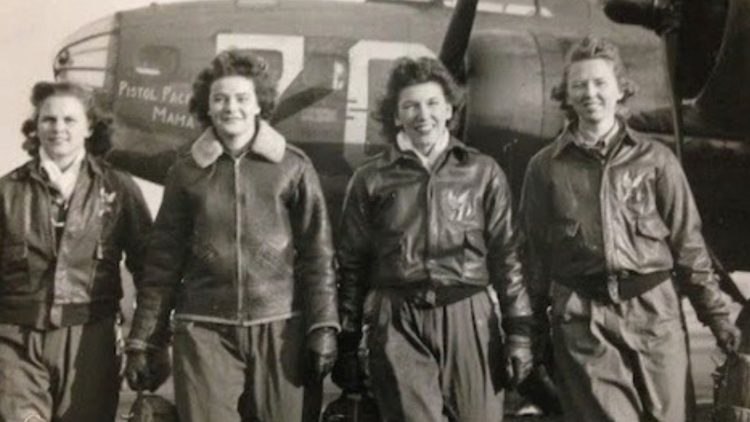The Trailblazing WASPs
The Women Airforce Service Pilots (WASPs) were another trailblazing group, consisting of over 1,000 female pilots who served during World War II.
WASPs ferried military aircraft from factories to bases, towed targets for gunnery training, and trained male pilots, filling critical roles that freed male pilots for combat.
Despite their invaluable contributions, the WASPs faced institutional resistance and were not granted military status until decades later.
Their right to be buried at Arlington National Cemetery was only officially recognized in the last decade.
Controversy Over the Decision
The Air Force confirmed the removal of these courses, stating it “will fully execute and implement all directives outlined in the Executive Orders issued by the President.”
However, the decision has drawn sharp criticism.
The Tuskegee Airmen, Inc., a nonprofit organization dedicated to preserving the legacy of the airmen, expressed strong opposition in a statement to USA TODAY.
The group emphasized that the videos were not about promoting one group over another but were integral to understanding the diverse history of American military service.
“The stories of the Tuskegee Airmen and the WASPs are essential parts of American history,” the organization stated. “They carry significant weight in highlighting the sacrifices and contributions made by service members of all backgrounds. Removing these stories diminishes our shared heritage and fails to honor their legacy.”
The organization called on President Trump and the Secretary of Defense to reverse the decision, urging the restoration of the courses to their original status.
Implications for Military Training
Critics argue that removing these historical narratives from training undermines efforts to inspire a broader range of individuals to consider military careers, particularly in fields like aviation that have historically seen low minority representation.
The Air Force has recently sought to expand its outreach to underrepresented groups, recognizing the importance of diversity in strengthening the armed forces.
Supporters of the decision claim it aligns with federal directives to curtail DEI initiatives, but the lack of clear guidance has led to confusion and a broad interpretation of what content must be removed. This has prompted some agencies, including the Air Force, to adopt overly cautious measures to ensure compliance.
The Official Statement from Tuskegee Airmen, Inc. in response to the removal of the Tuskegee Airmen Story from Air Force training courses. pic.twitter.com/dPZNbmiyGu
— The 1st Lady of Love (@The1stLadyLove) January 26, 2025
Preserving History
The removal of these courses raises larger questions about how the military honors and preserves its history while balancing contemporary political mandates.
The Tuskegee Airmen and WASPs represent groundbreaking achievements that reshaped the military and society at large. Their stories highlight resilience, excellence, and the breaking of barriers—values that resonate with service members of all backgrounds.
As debates over diversity and inclusion continue to unfold, many are left questioning whether decisions like this risk erasing the very stories that inspire future generations.
The legacy of the Tuskegee Airmen and WASPs serves as a powerful reminder of the contributions made by underrepresented groups to the defense of the nation. Their place in military education should not be viewed as a political statement but as a testament to the courage and determination that define America’s armed forces.










COMMENTS